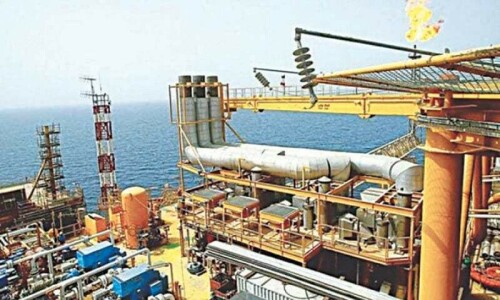ALMOST half a decade ago, three separate surcharges were imposed on the price of electricity to help the power sector meet certain costs that were otherwise unaffordable for it. These costs were debt-service obligations on the outstanding payments owed by the government to power generation companies, what we sometimes call the ‘circular debt’; the cost of ‘future investment’, particularly the Neelum Jhelum hydropower project; and ‘tariff rationalisation’ to ensure uniform price across the country and cover the cost of part of the subsidy provided to low-income consumers. All three surcharges are now up for renewal, and in an almost reflexive manner, the government has asked the power sector regulator, Nepra, to allow them to continue.
Taken together, the surcharges are living proof that the core problems of the power sector have not been resolved, despite the addition of massive new generation capacity. The core problem relates to sector liquidity, and if the government has to resort to surcharges to raise the funds to pay for its own inability to improve recoveries, it amounts to asking the consumer to pay for the government’s failure. The Neelum Jhelum hydropower project is nearing completion, so it is hard to understand why a surcharge levied only to pay for its construction costs should be indefinitely renewed. If the purpose is to raise funds for ‘future investment’, then the government needs to provide iron-clad assurances that the funds will not be diverted to pay for current expenditures, as has happened with the gas development surcharge. The financing cost surcharge is simply another way to get consumers to pay the interest charges on the borrowing that power generation companies have to undertake in order to bridge their funding shortfall when the government is unable to pay for its power purchase. If this surcharge is being renewed at the time when the government boasts about adding thousands of megawatts of additional generation capacity to the power sector, it just means a leaky bucket has been enlarged in size, rather than the cracks being fixed. The request for renewal will in all likelihood be granted, because without these surcharges the government would not be able to pay for power generation for too long. This is unfortunate, and a sad reality for the consumers; the latter may find that while loadshedding has been reduced, the costs of the power sector’s dysfunctions remain firmly on their shoulders.
Published in Dawn, March 12th, 2018








































